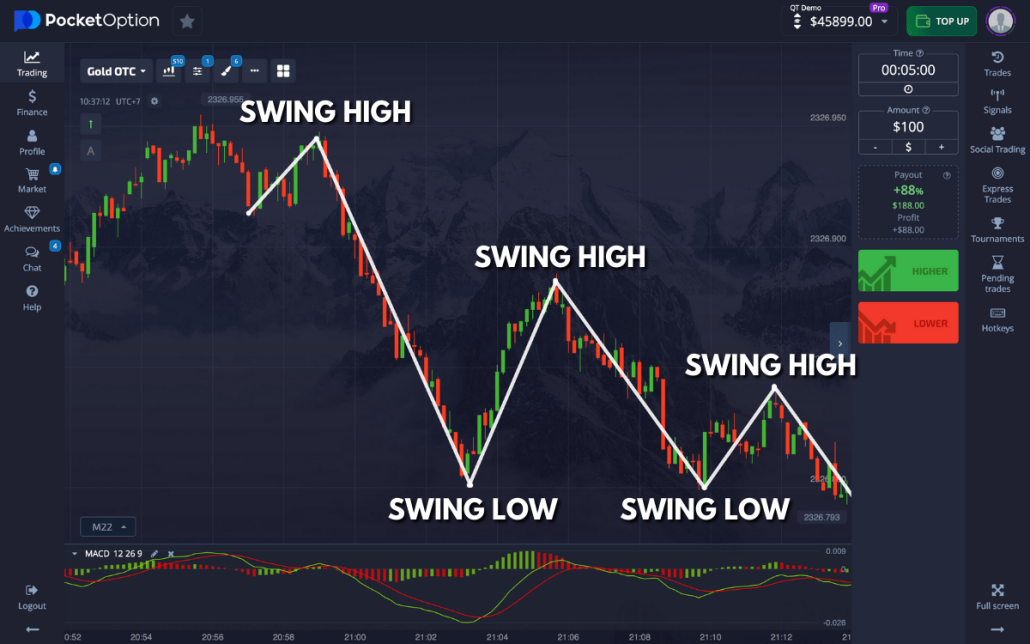
Navigating the complexities of pocket option taxes Pocket Option taxes can often feel overwhelming, especially for new traders. Understanding how your trades are taxed is crucial if you want to avoid penalties, maximize your profits, and ensure compliance with your local laws. This article aims to clarify the different taxation rules applicable to trading on Pocket Option and provide essential tips for traders to stay informed and compliant.
1. Understanding Tax Obligations for Traders
The first step in properly addressing pocket option taxes is understanding that, in most jurisdictions, trading profits are subject to taxation. How these profits are taxed can vary significantly based on factors such as your location, the frequency of your trading activity, and how long you hold your trades. In general, there are two main types of tax classifications for trader income: capital gains tax and income tax.
2. Capital Gains Taxes vs. Income Taxes
When you trade on platforms like Pocket Option, your profits can either be classified as capital gains or ordinary income, depending on your trading strategy.
2.1 Capital Gains Tax
If you hold your trades for more than a year before selling, your profits may qualify for long-term capital gains tax rates, which are typically lower than ordinary income rates. Quick trades, or those held for less than a year, generally incur short-term capital gains tax, which is taxed at your ordinary income rate. Familiarizing yourself with these distinctions will help you plan your trades more tax-efficiently.
2.2 Income Tax
Some traders, especially those who engage in day trading or have a business model set around trading, may be subject to ordinary income tax. This means that all trading profits are added to other income to determine your overall taxable income for the year, which could push you into a higher tax bracket.
3. Reporting Your Trades
Another crucial aspect of managing pocket option taxes is accurately reporting your trades. In many countries, brokers like Pocket Option will provide you with documentation summarizing your trades, which can serve as your primary source while preparing your tax returns. Here are some key points to remember:
3.1 Record-Keeping
Maintaining detailed records of all your trades is essential. Include information on purchase price, sale price, dates of trades, and any associated fees. This will not only help in calculating your gains or losses but also prepare you for any potential audits from tax authorities.
3.2 Tax Forms
Depending on your country, you may need to fill out specific tax forms. In the United States, for instance, Form 8949 is used to report capital gains and losses. If you’re trading as a business, you may need different forms, such as Schedule C for reporting profits from self-employment.
4. Strategies for Managing Taxes

Here are some strategies that traders can adopt to manage their tax liabilities effectively:
4.1 Loss Harvesting
If you have realized losses from your trades, you can use those losses to offset your gains, potentially reducing your overall tax burden. This approach, known as loss harvesting, can be particularly beneficial at the end of the tax year.
4.2 Holding Periods
Consider your trading frequency and holding periods when planning your trades. If possible, holding onto investments for over a year can qualify you for the more favorable long-term capital gains tax rates.
4.3 Consulting a Tax Professional
Although many traders attempt to file their taxes on their own, consulting a tax professional who understands trading taxes can save you time and money. A tax advisor can provide personalized guidance based on your unique trading activities and circumstances.
5. International Considerations
If you’re trading on Pocket Option from a different country or dealing with international assets, you should also be aware of the potential for additional tax obligations. Many jurisdictions tax foreign income differently or may have specific reporting requirements concerning foreign accounts and assets.
5.1 Tax Treaties
Some countries have tax treaties with others that can affect how your profits are taxed, especially if they reduce withholding taxes. Researching these treaties can provide opportunities for tax savings if applicable.
5.2 Currency Conversion
If you’re trading in a currency different from your local currency, keep track of any gains or losses due to currency fluctuations, as they can also impact your tax obligations.
Conclusion
In conclusion, understanding your tax obligations related to pocket option taxes is essential for any trader. By being aware of your responsibilities, keeping accurate records, and employing effective tax strategies, you can efficiently navigate the complexities of trading taxation. As always, stay informed about changes in tax laws and consult with professionals when needed to ensure you remain compliant and maximize your profits.
Successful trading on platforms like Pocket Option requires not just skill in trading strategies but also diligence in managing your financial obligations. By prioritizing your tax knowledge, you can focus on what you do best—trading.
